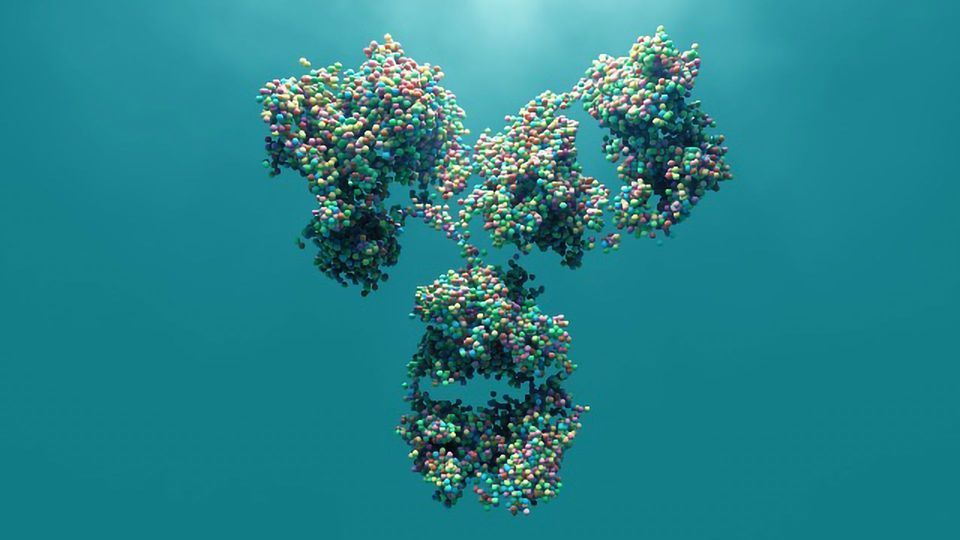SARS-CoV-2 Immunity Rapidly Declines Within Months of Infection

Complete the form below to unlock access to ALL audio articles.
A recent preprint study published in medRxiv, indicates that there is a rapid decline in the levels of SARS-CoV-2 neutralizing antibodies during the weeks following initial infection. This raises questions over the potential for re-infection, the effectiveness that may be expected from vaccination and the viable window for antibody testing in disease surveillance.
The study, led by Kings College London researchers, followed 65 patients with SARS-CoV-2 infection that had been confirmed by RT-qPCR for 94 days following the first onset of symptoms. During this period, repeated serum samples were collected and SARS-CoV-2 neutralizing antibody titers measured by ELISA and neutralization assay.
This showed over 95% seroconversion and identified neutralizing antibodies beyond 8 days post onset of symptoms. Disease severity was correlated with peak antibody levels; however, this did not appear to impact antibody kinetics. During the ensuing observation period, a rapid decline of neutralizing antibody titers was observed, with some individuals approaching baseline levels by the end of the observation period.
“This is the first comprehensive study of the longevity of antibody responses in both symptomatic and asymptomatic individuals infected with SARS-CoV-2. This is a well-performed analysis which provides a thorough examination of different antibody responses to SARS-CoV-2,” commented Lawrence Young, Professor of Molecular Oncology, University of Warwick.
Whilst much progress has been made in SARS-CoV-2 research in a relatively short time, including the identification of neutralizing antibodies towards the virus, we still have much to learn about the disease, antibody response dynamics and the possible longer-term outcomes.
“The implications of this study in terms of both managing the pandemic and the need for widespread education are broad-ranging. First, herd immunity approaches, still callously promoted by some, are clearly non-viable. Second, should a viable vaccine become available, it may require regular boosts or combination of different platforms to elicit the best possible protection. Third, development of additional lines of antiviral therapies and/or drugs that lessen the severe inflammation in advanced COVID-19 is essential to support future vaccination programs,” commented Dr Stephen Griffin, Associate Professor in the School of Medicine, University of Leeds.
The implications of research in this area will clearly be vitally important for guiding disease management strategies and vaccination program developments. Young continued, “It provides an important initial analysis but further studies with more recovered patients and asymptomatic individuals followed over longer time periods are required. This will help to determine the longevity of the antibody response properly and what this means for the possibility of re-infection and the design of effective vaccines.”
Despite being a preliminary study, it is clear from the response of the scientific community that the decline in antibody levels towards SARS-CoV-2 observed here is of concern. Both in terms of re-infection and the implications it may have on the ability to design and deploy an effective vaccine that provides a workable duration of immunity, these results are important.
Dr Jonathan Stoye, Group Leader, Retrovirus-Host Interactions Laboratory, The Francis Crick Institute, said, “While this result is still very preliminary, with relatively low numbers of subjects followed for a limited period of time and without any information about responses following a second exposure to virus, confirmation could have very significant ramifications for our understanding of immunity to SARS-CoV-2 and vaccine development. In addition, it would suggest that we need to redouble our efforts to identify and develop novel therapeutic strategies, either by repurposing existing drugs or by performing new drug screens.”
This article is based on research findings that are yet to be peer-reviewed. Results are therefore regarded as preliminary and should be interpreted as such. Find out about the role of the peer review process in research here. For further information, please contact the cited source.


